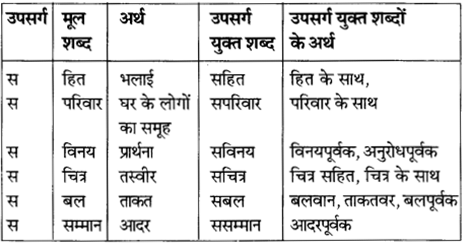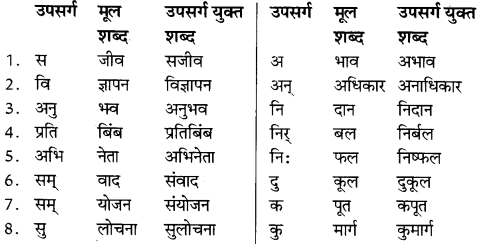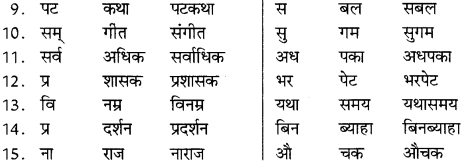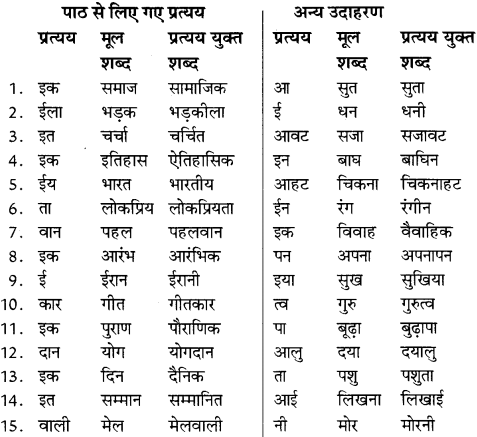NCERT Solutions for Class 8 English It So Happened Chapter 5 Princess September are part of NCERT Solutions for Class 8 English. Here we have given NCERT Solutions for Class 8 English It So Happened Chapter 5 Princess September.
| Board | CBSE |
| Textbook | NCERT |
| Class | Class 8 |
| Subject | English It So Happened |
| Chapter | Chapter 5 |
| Chapter Name | Princess September |
| Category | NCERT Solutions |
NCERT Solutions for Class 8 English It So Happened Chapter 5 Princess September
TEXTUAL EXERCISES
COMPREHENSION CHECK (Page 38)
1. How many daughters did the royal couple have ?
2. Why were they named after the months of the year ?
3. The king had a peculiar habit. What was it ? Why is it called peculiar ?
4. (i) What was Princess September’s reaction to the loss of her parrot ?
(ii) What was her mother’s reaction to it ?
(iii) What do the reactions indicate about the nature and temperament of each ?
5. What pulled the Princess out of her gloom ?
6. How did the Maids of Honour come to know that the Princess and the bird had become intimate friends 1
7. The new bird was full of new songs but the old parrots always repeated themselves. What did they say ?
8. What is the King’s opinion about his Councillors ? Why did he form that opinion ?
9. (i) The eight Princesses made an offer to Princess September. What was it ?
(ii) Why, in your view, did they do it ?
10. What did the sisters advise the Princess to do about her bird ?
Answers:
1. The royal couple had nine daughters.
2. They were named after the months of the year. Thus the Queen found it easy to remember their names.
3. The King had a peculiar habit. Instead of receiving gifts on his birthday he gave them. Kings usually receive gifts on their birthdays. So this way it was called peculiar.
4. (i) Princess September wept and wept. She could not be comforted. She was put to sleep
without supper.
(ii) Her mother said that her weeping was simply nonsense. She asked the Maids of Honour to put her to sleep without supper.
(iii) The princess is innocent. She gets very sad at the death of the parrot. But the Queen is mature. She doesn’t give much importance to the parrot’s death. She calls it nonsense.
5. The coming of a little bird to her room at night comforted her. She wiped her tears and sat up. She heard the little bird sing sweetly. She came out of her gloom.
6. The Maids of Honour saw the bird eat rice out of the princess’s hands. The bird had her bath in her saucer. The bird sang sweetly and this made the princess very happy. So they understood that the princess was very intimate with the bird.
7. They always said ‘God save the king’ and ‘Pretty Polly’.
8. The king has a low opinion about his councillors. He said that his councillors were like the parrots. They said the same thing differently. But it never meant anything.
9. (i) They offered their pocket money to buy the Princess another green parrot.
(ii) They did it because Princess September’s parrot had died. The little bird had now made her happy. The sisters were jealous of the bird. They wanted the bird to go. Buying a new parrot was a part of that plan. They thought with the coming of the parrot, the bird would go.
10. The sisters advised the Princess to put the little bird into the cage.
COMPREHENSION CHECK (Page 43)
1. In the following sentence elaborate the parts given in bold. Under the circumstances it was a very unfortunate remark for the bird to make.
2. (i) What did Princess September do to ensure the safety of her pet ?
(ii) How did the bird react to it ?
3. Why did the bird refuse to be taken out in her cage ?
4. (i) What persuaded Princess September to give the bird his freedom again ?
(ii) How did the bird react to it ?
5. Princess September kept her window open day and night.
(i) How did it help the bird ?
(ii) How did it help the Princess herself ?
6. The eight sisters kept their windows shut. How did it affect them ?
Answers:
1. The circumstance was that the princess was really worried about the bird. The bird couldn’t come due to its father-in-law’s holding a party. But it worried the princess. The remark made her more worried. So it was an ‘unfortunate remark’.
2. (i) Princess September put the bird into the cage to ensure its safety.
(ii) The bird did not like it at all. It said that it couldn’t sing. And if it couldn’t sing it would die.
3. The bird refused to be taken out in her cage for a reason. The world seems different when looked at through the bars of a cage. It wanted to see them freely without the cage.
4. (i) The bird said to Princess September that it couldn’t sing unless it was free. And if it could not sing it would die. This persuaded the Princess to give the bird its freedom again.
(ii) He opened his wings and flew right away into the blue.
5. (i) It helped the bird to fly in and out as and when it liked. This way its freedom was ensured.
(ii) It helped the Princess to be extremely beautiful. When she was mature enough she was married to the King of Cambodia.
6. They became extremely ugly and disagreeable. The king married them to the councillors.
EXERCISE (Page 44)
Discuss the following questions in small groups. Write their answers later.
Question 1.
Are the sisters unkind and cruel ? Find evidence in the text to support your idea.
Answer:
Yes, the sisters are unkind and cruel. They are, in fact, jealous of princess September because the bird sings sweetly. Their parrots repeat only two things. These are ‘God save the king’ and ‘Pretty Polly’. But the bird sings new songs differently.
Question 2.
Which, to you, is the most important idea in this story, and why ?
(i) importance of music ‘
(ii) value of freedom
(iii) beauty of nature
Answer:
(ii) Value of freedom
The reason is that ‘freedom’ to any living thing is ‘life’ itself. If one is denied ‘freedom’, its life is snatched.
We hope the NCERT Solutions for Class 8 English It So Happened Chapter 5 Princess September help you. If you have any query regarding NCERT Solutions for Class 8 English It So Happened Chapter 5 Princess September, drop a comment below and we will get back to you at the earliest.




